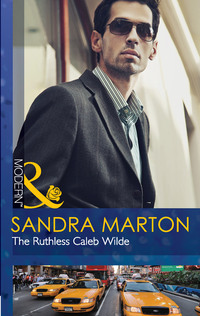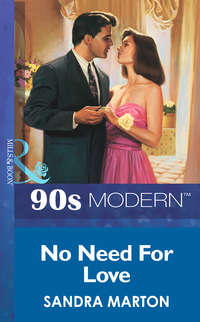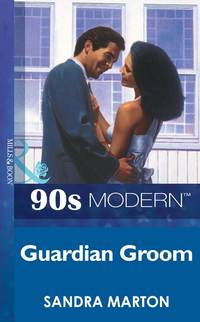
Полная версия
Ring Of Deception
“Mommy?”
She looked down into Emily’s pleading face.
“Come inside, Mom, just for a minute.”
Abby nodded. “Just for a minute,” she said, taking her daughter’s hand.
They all went into the center and made small talk about nothing in particular for a few minutes. Then one of the teachers called out to Katherine, who made her apologies and went to talk with the woman. Emily gave Abby a big hug and a smacking kiss, and ran off to join her play group.
Abby watched her go.
Her little girl was going to eat ice cream.
She was going to eat crow.
She’d had one faint hope—that Luke Sloan would wander off once they were alone. He had work to do, after all. But he didn’t move. He stood there, motionless, his hands tucked into the pockets of his jeans, his eyes fixed on her.
“So,” he said, “we all squared away?”
Abby nodded. “Yes.”
He took his hands out of his pockets and folded his arms over his chest.
“You’re sure?”
Abby nodded again. “Yes.”
He was waiting. She knew the reason, knew she had to get it over with.
“I guess—I guess I owe you an apology. I’m sorry.”
“Excuse me?”
“I said . . . ” Abby lifted her chin. “You heard me, Mr. Sloan.”
He had. He’d also heard the way she’d delivered that apology. What was it with this woman? Better still, what was it with him? Last night, a babe with twice her looks had practically thrown herself into his lap. This one had taken a tenth of a second to decide he was little better than something she might see floating belly-up in the bay.
So what? Why should it bother him? As long as she wasn’t going to point her finger at him and scream loud enough to call attention to him whenever their paths crossed, what did it matter?
Luke gave a sigh, relaxed a little and tucked his hands back into his pockets.
“You’re right, Mrs. Douglas. You apologized already. I should have accepted it the first time. It’s just . . . Here’s the thing, Mrs. Douglas—”
“Ms.”
“Sorry?”
“I said, it’s Ms., not Mrs.”
“Ah.” He nodded, wondering what that meant, whether she was divorced, widowed, had never been married . . . . He wondered, too, why it should matter to him. “About what happened here . . . ”
“I already said—”
“I know. I just want you to understand why I reacted so strongly. I’d never hurt a kid. Never. If you only understood how—” How cops feel about the kind of man you thought I was, he wanted to say. How we wish we could take the law into our own hands when we arrest the bastards who get their kicks out of hurting women and children . . . “I come from a big family,” he said, knowing that would have to suffice. “I have lots of cousins, a couple of them probably just about Emily’s age. So when you thought . . . ”
“I’m sorry,” Abby said, and he could tell that she really meant it this time. “It’s just that it’s such a crazy world . . . .”
“Sure. I understand.” Luke smiled. “Okay, then. Now we really are squared away.”
Abby smiled, too. “Yes. We are.” She was the one who held out her hand this time. “Goodbye, Mr. Sloan.”
Once again, Luke’s fingers closed around hers. “Luke.”
“Luke.”
“Goodbye, Abby.”
She tugged lightly on her hand. He let go of it and she turned quickly, went through the door and was gone.
Luke stared after her. Then he smiled, pursed his lips and whistled softly as he made his way to Katherine’s office, where his good mood vanished in an instant.
“Mr. Sloan,” Katherine said in a voice that was enough to freeze him in his tracks.
“Luke,” he offered as she stepped past him and slammed the door shut.
“Detective Sloan,” she said with deliberate emphasis, “if you think you can come to Forrester Square and disrupt everything—”
“Hold on.” Luke held up his hands. “I didn’t disrupt anything. That woman—Abby Douglas . . . ”
“Yes?”
He’d been going to say Abby had overreacted, but how could he know how a mother would feel if she thought her child was in danger? He’d been on the police end of a couple of child-missing cases, and as hard as such things were on cops, they had to be twice as tough on parents.
“It was a screwup,” he said. “Nobody’s fault, just one of those things that happen. Trust me, Katherine. You don’t want the kids upset, and I don’t want to call attention to myself. Okay?”
“This is exactly why I said I’d only cooperate if they sent me a female officer.”
“Yeah,” Luke said, straight-faced, “but could she build you shelves that will make you drool?”
Katherine stared at him. Then her lips twitched. “They’d better.”
“They will, I promise.” He took the leather bag he carried from his shoulder and walked to the back of the office. “As a point of information, is the Douglas woman widowed, divorced, what?”
“I don’t see what that has to do with anything.”
“It’s a cop thing,” Luke said casually. “Filling in all the blanks, you know? Okay.” His tone turned brisk. “I understand there’s a vacant apartment on the third floor.”
“Yes. My brother lived up there, but now that he’s married, he moved to a house. Eventually the day care will be taking over the space.”
“Good.” Luke zipped open the bag and took out a small black object. “I left my carpentry tools in my SUV. I’ll go get them in a little while. Meanwhile, I’m going to set this up.”
“What is it?”
“A camcorder. I’ll put it in one of the third-floor windows.”
“A camcorder? I thought you were here to do surveillance.”
“I am, but the camera can do it nonstop, and if something—somebody—interesting goes into the jewelry exchange, we’ll have a record we can view.”
“And you’ll still be here, in my office?”
Luke glanced up and smiled. “Yeah. Sorry about that.”
“No, that’s okay.” Katherine sighed. “Although, to be honest—”
“To be honest, the sooner I’m gone, the better. I agree. We’re just lucky that this window, this building, gives me such a perfect—”
“A perfect what?”
“Huh?” Luke turned toward Katherine. “A perfect view of the jewelry exchange,” he said, but what he’d just had a perfect view of was Abby Douglas, standing inside the exchange, behind the counter nearest the window.
CHAPTER FOUR
BY THE END OF THE DAY, Luke was starting to wonder how he was going to survive this assignment.
Between the day care director’s active disapproval of him setting up his equipment in her office, the kids trooping in and out of the room, and a noise level that approached that of a hen-house under attack by a weasel, he felt the kind of headache coming on that would rival any he’d ever experienced after some of the bachelor parties he’d attended.
“Don’t you ever close your door?” he’d said to Katherine Kinard.
“No,” she’d replied.
End of discussion.
He’d looked up a dozen times and found munchkins wandering through, though now that Kinard had hurried off to a meeting, the kids didn’t come all the way into the office. They crowded into the doorway instead, staring at him as if he was some exotic species of animal.
He knew it was because he was a male in female territory. The teachers, the aides, everybody who worked here was a woman. Still, he had to fight back the god-awful desire to look at the kids and yell “Boo.”
He didn’t do it. He’d learned his lesson about frightening small children this morning.
Instead, he endured.
It was like being in the Gulf with the corps and finding yourself in enemy territory.
Usually, police surveillances were the dullest things on earth. Just you, a camera, maybe a tape recorder, if you’d planted a bug, and whatever it was you were watching. A cop’s life consisted of ninety-nine percent boredom and one percent mind-numbing terror, where you hoped your training and instincts would be enough for you to survive. It was never the bang-bang, shoot-’em-up existence like you saw on TV, the one where the good guys solve the crime and save the heroine in the last three minutes, but at least it had some variety—except when you were doing surveillance.
On the other hand, working undercover was a high. You put on clothes to suit the character you were playing, got caught up in another kind of life, dealt with people who thought you were one of them when you weren’t. Luke had always liked that part of his job, and he was good at it. Pretending to be a druggie, to be a dealer, even to be a gun for hire—he’d played that role, too—could be dangerous as hell.
That was probably why it was so much fun.
But this? Sitting around, pretending to be a carpenter . . . This was Dullsville. What could possibly come of it? That was what he’d thought, anyway.
Except it turned out there might be another way to get information about the jewelry exchange, and that other way’s name was Abby Douglas.
Maybe she knew something. Maybe she knew more than Luke wanted to think about, which was crazy, because what was Abby Douglas to him? Nothing. Well, okay, a good-looking woman, but the world was full of good-looking women.
It was just that this one had a little girl who adored her, and a look in her eyes that said something, or somebody, had once given her a bad time.
Luke sighed, took the container of coffee he’d bought next door at Caffeine Hy’s, sat down in a chair beside the window that looked out at the exchange, and stretched out his long legs. The coffee had cooled down some, but it was still hot, strong and good.
He smiled, remembering the look on the face of the kid behind the counter when he’d stepped up to place his order.
“One coffee to go,” he’d said, “extra large, black.”
The kid had shifted a wad of gum from one side of her mouth to the other as she stood behind the cash register, fingers poised over the keys.
“And?”
“And . . . that’s it.”
“You don’t want a latte?”
“No.”
“Whipped cream?”
“No.”
“Shaved chocolate?”
“No,” he’d said again, politely. “Just the coffee, black, extra large.”
“How about today’s special? Caf;aae Kava Java Lava Mocha?”
“No,” he’d repeated, and he’d damn near felt every eye in the place settle on him.
Dan often teased him about his preference in coffee. He said Luke could wind up being banished from the city if he kept ignoring all the exotic brews served up in Seattle’s coffee bars and insisted on sticking to plain old high-test.
His ex had laughed about it, too. “You’re so predictable, Luke,” Janine had said, and he’d smiled and replied, well, so was she, because she always ordered Caf;aae Killa Vanilla Something-or-Other . . .
Luke’s jaw tightened.
That predictability had marked the end of his marriage. Stopping at home one night to pick up some notes on a case, he’d found two take-out coffees on the kitchen table, one sending up the scent of vanilla, the other with a milky froth floating on top.
He’d known right then what he’d only suspected for weeks. He’d headed straight for the bedroom, heard the sounds before he pushed the door all the way open . . . .
And what in hell was he doing, sitting here and thinking back to something that had been dead and gone for three years?
Luke drank some of his coffee.
He had too much time on his hands, that was the problem. He’d go nuts if this detail lasted more than a few days.
Okay. He’d think about something else. Something pleasant, like what would he do once this surveillance ended? He had time coming to him. Lots of it. Maybe he’d go somewhere. Drive to Oregon, go up the coast. Or take a couple of weeks, head for his cabin at Neah Bay, do some of the fix-up work he’d started last year about this time.
Neah Bay. He’d run from the place as soon as he was old enough, first into the marines, then into working construction here in the city while he took the test for the Seattle PD.
Now he wasn’t quite sure why he’d run so far or so fast.
He’d gone back to the rez only a few times during those first years, but he returned to it more and more often lately, even though there was nobody to draw him there anymore. His aunts, his uncles, the extended family that had raised him were all gone. Even his cousins had moved away.
Still, he went back.
There was something about the beauty of the place, the cool green of the forest, the thunder of the ocean on the rocks, the piercing blue of the sky, that drew him. A tribal elder had once told him that no matter how you tried to deny it, ancestral memories beat forever in your blood . . . even if that blood was half white.
Or maybe it was because, sometimes, just being where he’d grown up could evoke memories of his mother, how it had been when he was a little kid and she was alive.
She’d been a good mother. Warm. Loving. Devoted. He was sure she’d have defended him from harm, real or imagined, every bit as fiercely as the Douglas woman had defended her kid this morning.
Abby Douglas was some piece of work. No question about it, she’d have taken him apart if she’d had to. Well, not really, but she’d have tried.
Luke drank down the last of his coffee.
Was it fear of the predators who seemed to roam the streets of towns and cities, preying on the innocent, that had made Abby come at him as she had?
That kind of fear was valid. It was a new, terrible reality in American life, but somehow he had the feeling there’d been more behind Abby’s reaction than a concern that he was a child molester. He thought again about that look he’d seen in her eyes, the set to her mouth that suggested she’d been expecting trouble to come looking for her and the kid, and that she’d been expecting it for quite a while.
Sure, he had nothing to base that observation on, but he’d been a cop for too long to discount intuition, a sort of sixth sense you developed after a few years on the job.
His told him there was more to the Douglas woman’s response than met the eye.
He’d have to check it out. He’d have to check out Abby Douglas, anyway, now that he knew she worked in the Emerald City Jewelry Exchange.
Damn.
Luke sat up straight, aimed the empty cup at the trash can near Katherine Kinard’s desk, then smiled when he sank the basket, stopped smiling when he remembered the director’s words as she’d watched him setting up his stuff.
“I can’t believe I’m letting you spy on people,” she’d said with all the righteous indignation of a civilian who wanted safe streets but didn’t want to know how cops kept them that way.
What would Abby Douglas think if she knew he was a cop? Would she look on him as a necessary evil, the way Kinard had? Or would she see him as a sexy knight standing between her and all that was bad in the world.
Lots of women did.
He shut his eyes and thought about their first meeting.
This morning, he’d imagined she wasn’t his type. How could he have thought that? She was definitely his type. Curvy. Fiery. She smelled good, too. He’d noticed when she’d come at him like a tiger. She smelled of sunshine. In a city like Seattle, that was one very appealing scent.
If things were different, if he wasn’t here to do a job, if she was just a woman he’d met somewhere . . .
Except, she wasn’t.
Luke sat up straight, opened his eyes and put them to better use by leaning forward and peering through the lens of the miniature camera, a tiny marvel of silicone chips hidden inside what looked like a perfectly normal box of nails he’d stood in just the right place on the windowsill . . .
“Whatcha doin’?”
Luke jerked his head back so fast he slammed it on the window frame. A little boy stood in the doorway, one finger jammed up his nose.
How many kids were in this building? Fifty? A hundred? A million, easy, and every last one of them seemed determined to find his or her way in here.
“I’m working,” Luke said shortly, and reached for a tape measure.
“Are you Katherine’s husband?”
Luke shot the kid a look. “No.”
“Are you her boyfriend?”
“No.”
“Are you Emily’s daddy?”
“Am I . . . No, I’m not. Why would you think I was?”
“‘Cause she’s tellin’ everybody you’re big and brave and smart.”
Luke gave a weary sigh. “Don’t you have a place you’re supposed to be, kid? Isn’t it juice time, or milk time, or bathroom time?”
At first, he’d been more polite to the wanderers who drifted in to see him. They asked questions like, where were the apples? The chalk? The Scaredy Cat Scooby-Doo doll—whatever in God’s name that was. His answers had ranged from “What?” to “I don’t know,” and back again.
After a while, he’d stopped answering at all. Maybe if he pretended the munchkins weren’t there, they wouldn’t be.
It was a clever idea, but it hadn’t worked. This kid was living proof of that.
Luke flashed him another look. “Did you ever hear of a handkerchief?”
The kid yanked his finger from his nose, checked it for signs of life, then hid his hand behind his back.
“Emily thinks you’re nice, but I don’t.”
Well, at least he’d made a good impression on somebody.
“I’d be nicer if you took a tissue from that box on Ms. Kinard’s desk and used it.”
The boy shuffled his feet. Then, to Luke’s surprise, he edged over to the desk and plucked what looked like most of the tissues from the box.
“Her name’s Katherine.”
The kid wiped his finger on the tissues, dug around in his nose a little, then dropped the mass of paper in the trash.
“Emily says you’re a carpenter.”
“She’s right.” Luke measured the wall, marked off a couple of spots. “That’s what I am.”
“Whatcha doin’?”
“Working,” Luke said irritably. “I just told you . . . ”
He paused. Was that a different munchkin voice? He looked around and saw that it was. The first kid had been joined by another. This one had a smear of jelly on his chin and wore pants that sagged in the seat.
“Yuck,” the nose-picker said, and took off.
Yuck? Luke frowned. Surely a case of the pot calling the kettle black . . . except the new kid shuffled forward, and Luke’s nostrils crinkled as he caught a whiff of something.
He had the sudden unhappy feeling he knew the reason those pants were so saggy.
“I gotta go potty.”
“Right.” Luke stood up. “Well, that’s not my problem. Where’s your teacher?”
“I gotta go now,” the boy said, and jiggled from one foot to the other.
Luke muttered something. He put down his tape measure, grabbed the kid’s hand and marched him out of the office.
“Hello,” he called to the world in general.
“Luke?” Katherine Kinard came quickly toward him. “What are you doing?”
“Looking for help. This kid—”
“The children are not your responsibility.”
“Damned right, they aren’t.”
“Your language . . . ”
“Maybe you want to discuss my language later. Or would you rather do it now, while this kid poops all over your floor?”
Katherine’s eyes widened. “Joshua,” she said, “do you have to go to the bathroom?”
“Uh-uh. Not anymore.”
Luke laughed. He couldn’t help it. Katherine gave him a baleful look and held out her hand.
“Come with me, Joshua. I’ll take you to the toilet and then we’ll find your play group.”
“‘Kay.”
“Mr. Sloan, wait in my office for me, please.”
The “please” changed nothing. The words were an order. Luke thought of telling the director what she could do with her orders, but he knew that would be a mistake. He needed her cooperation for however long he was going to be here. So he kept his mouth shut, strolled back to the office and settled a hip against the desk.
The lady wanted to talk? Fine. So did he. By the time she returned minutes later, he was more than ready.
“Ms. Kinard.”
“Mr. Sloan.”
Katherine closed the door, clearly a sign she meant business.
“Mr. Sloan, this isn’t going to work.”
Luke nodded. “Agreed.”
“I cannot have children streaming in here all day.”
“And I,” Luke said, folding his arms over his chest, “am not here to play nursemaid to a bunch of toddlers.”
“They’re not all toddlers, Mr. Sloan, and the very last thing I wish you to do is play nursemaid.”
“Amen to that.”
“Good.” Katherine let out a breath and gave him a polite smile. “We agree, then.”
“We do.”
“I’m sorry this didn’t work out, Mr. Sloan . . . Luke. Shall I inform your lieutenant, or will you?”
“Inform him of what?”
“Why, that you won’t be doing your surveillance from our center anymore.”
Luke’s smile was tight. “I’m not leaving.”
“But you just said—”
“I said that I couldn’t do my job and play nursemaid.”
“Yes, but in that case—”
“Make up some rules. Tell the kids your office is off-limits until I finish here.”
“I’m afraid that’s impossible. As you said, this is my office.”
“And this is a police matter,” Luke said coolly. “I can’t get anything done with kids hanging on my neck.” He paused. “And when I get around to using tools—”
“Tools?”
“Tools, Katherine. Saws. Hammers. The things I’ll need to do the job right. As far as everyone else knows, I’m a carpenter, remember? I’m going to be building those shelves, and I don’t think you’ll want rug rats underfoot when I do.”
Katherine stared at Luke. Then she sighed and sank into her chair.
“I’m not going to get rid of you that easily, am I?”
“You’re not going to get rid of me at all. Go on. Call your attorney. He’ll tell you I’m here to stay.”
Katherine nodded. The truth was, she’d already spoken with Daniel again and he’d told her the same thing. Nobody would give her much information on what was happening across the street, but it seemed to be important.
The detective was right. They’d need some rules.
Katherine picked up a pencil, tapped it against her lower lip. “Rule number one. Kids can come in during breaks.”
“Meaning?”
“Meaning, morning juice, lunch, afternoon snack, late-day snack . . . ”
Luke ran a hand along the back of his neck.
“Goddamn it, Katherine . . . ”
“No bad language.”
“Sorry. Look, with all those scheduled breaks, kids will be in and out all the time.”
“I’m not going to change the way we run this place, Luke. Besides, I thought it was important to keep things looking as normal as possible. Isn’t that why you’re representing yourself as something you’re not?”
He scowled. That was an accurate description of undercover work, but Luke didn’t much like hearing it defined that way. There was something, well, unpleasant in knowing you were deliberately misleading people. People like Abby Douglas—unless she was somehow involved in the fencing operation.
His scowl deepened. Katherine mistook it as an indication he was going to argue and forged ahead.
“And when those break times occur, you will, of course, not use any dangerous tools.”
“Fine.”
“I think it might be a good idea, too, if you spoke to the children in the events room. Explained what a carpenter is, what a carpenter does . . . show them some of your tools, that sort of thing.”
“Talk to them? But I don’t know the first thing about kids.”
“They don’t know the first thing about carpenters, either. Or what it’s like to have a man in the center all day. We’re an all-female staff, in case you hadn’t noticed.”
“I noticed,” Luke said dryly.
“I’ll be honest. Nothing personal, but the sooner you’re done here—”
“I agree.” Luke cleared his throat. “And you can help speed me on my way.”
Katherine leaned back in her chair and tossed her pencil on the desk. “Just tell me how.”
“Doing surveillance is kind of like doing a giant jigsaw puzzle. At first, all you see are the pieces. Then, gradually—with luck and time and a little bit of skill—the pieces begin to come together.”








